I have never been to the location of that shooting. When the shooting was going on in Kokan, we spoke about it. During that time, I was busy with other work in Pune. But before starting the shooting, I stayed with the team, reading the script for them. I tried to make them understand the spirit of the script. And that's where my role ended. After the complete editing, Sujay showed the rough cut at my home. After watching it, I felt a lot of satisfaction.
Sunil Sukthankar, a former student of the Film and Television Institute of India, has been active in screenwriting and direction for the past three decades. He has worked on 20+ feature films with Sumitra Bhave and directed about 70 short films. For these works, he has received various awards, including 8 national awards. His main characteristic in the film industry is addressing specific social issues in his films.
In the social and cultural life of Maharashtra, the book 'Shyamchi Aai' holds exceptional importance. Based on this book published in 1953, Acharya Atre produced and directed the Marathi film 'Shyamchi Aai'. It gained popularity at that time, and discussions about it continued for about 70 years. In 1954, the film received the first Golden Lotus (Swarna Kamal) from the President of India. Now, a new producer, director, screenplay writer, and a new film team have come together to make a film based on 'Shyamchi Aai'. It was released on November 10, 2023, throughout Maharashtra. In this regard, Sunil Sukthankar's journey of script writing, and the analysis of Sane Guruji and Shyamchi Aai, are noteworthy efforts.
Question - The book 'Shyamchi Aai' has left a lasting impact on Maharashtra's society for 88 years. When did you read this book for the first time, what effect did it have on your mind? And before writing for this film, what was your assessment of 'Shyamchi Aai'?
-I have read Marathi books extensively from childhood. When I read it for the first time in my fourth or fifth standard, it was a captivating read. I remember shedding tears after reading it. Especially in those days, in school, we used to watch movies on a 16 mm projector. So, we got to see that movie. Even then, I had shed a lot of tears, especially when Shyam broke down after his mother's death. That image lingered in my mind at that age. But after that, I didn't have much connection with 'Shyamchi Aai'. However, I was aware that it is still a popular book. When I used to visit 'Sadhana' office, I came across Sane Guruji's other literature as well. During my college days, I realized Sane Guruji is the same person, who wrote Shyamchi Aai, who started a thought-provoking weekly like Sadhana, who started the Aantar Bharati Movement, who founded Rashtra Seva Dal!
When I started working with Sumitra Bhave I learned more. Sumitra Tai had worked in the cultural workshop of the Rashtra Seva Dal since childhood. Hence, Sane Guruji occupied a significant place in her mind. Sumitra Tai’s mother shared a heartening memory about Guruji with us. During the 1942 movement, socialist leaders like S. M. Joshi, Nanasaheb Gore, and Sane Guruji were working underground. At that time, Sane Guruji came to live with the Umranis (Sumitra Tai’s parents). At that time, other male members used to work or discuss in the Living room, but Sane Guruji would help Sumitra Tai's mother with kitchen chores and narrated stories. Such a different person Sane Guruji was in the eyes of Sumitra Tai. And at that time, Sumitra Tai was in her mother’s womb! Therefore, there was a special love in Sumitra Tai’s heart for Sane Guruji.
Then I learned some new things about Guruji. He had written a novel called 'Sati,' in which an intense love story unfolds, with a tragic end. The novel also reveals the rebellious nature of the woman protagonist. This part of his persona has remained hidden from many. Consequently, I haven't read it again, but somewhere in my mind, a memory of 'Shyamchi Aai’ remains ever-present. Many people in my circle, teachers. especially, still talk about it. There are people who’ve made it their life’s mission to ensure that every young boy and girl reads it. This book is an important part of Maharashtra’s recent public memory and conscience.
Question - You first saw the film 'Shyamchi Aai' when you were young. Over the past several years, you have worked in the field of films. You must have your opinions about the film directed by Acharya Atre. The first film in India was made in 1913, and 'Shyamchi Aai' is from 1953. This film received much acclaim and awards. Although films had become common, there must have been technical and social limitations of those times. Even considering that (especially in today's context), what is your assessment of that 'Shyamchi Aai'?
- During the COVID period, a variety of discussions were conducted through virtual meetings. In one such discussion, Sujay Dahake and I came together online. The conversation revolved around whether an artist should express social or political opinions. Both of us were on the side of 'it should be done.' An artist is a part of society, and true to that, he should express his opinions more intensely. After this conversation, Sujay called me and said, 'I want to make a film on 'Shyamchi Aai'. Will you write the script for it? What is your take on its content? And most importantly, are you comfortable working on a film if you are not producing or directing it? At that moment, I felt a little shocked, and I told him that I needed some time to think about it. Later, he called me again, and I expressed my willingness to work on the script. Because at such times, my first question is whether the director has the expertise to make a good film. It was confirmed here. I had a feeling that I should get involved in this.
My childhood was spent in Karad, Satara. I later moved to Pune. In my experience many regarded Mahatma Gandhi with contempt and Sane Guruji’s sensitive, mild manner was an object of ridicule! Not only did I never share those views, but I also never became interested in those discussions. It didn't seem right to me. I had read the article 'The Poet Who Would Kiss Death' by Acharya Atre during college. May it be Sane Guruji or personalities in the field of cinema like Gurudutt, I never felt that they were in any way unsuccessful in their life. I believe it is unjust to consider them failures. Sane guruji was a romantic at heart. And a visionary. He must have painted a mind picture of an extremely beautiful post-independence India. And when the reality was not even close, he must have been devastated and eventually depressed .
Keeping all this in mind, Sujay suggested to me that a preliminary outline should be written. Nevertheless, I told him that I would do it responsibly. After that, I first searched for the old ‘Shyamchi Aai’ movie on YouTube and watched it, and had very mixed reactions. The first reaction in my mind, the response of childhood, did not occur when watching the film today. The emotional depth of the movie is something I like a lot. Watching some scenes in our film after a few incidents fills me with emotion, and tears come to my eyes. The tears in the eyes of men have their strength; I think of it as an emotional connection, not necessarily something weak, perhaps because of my association with Sane Guruji.
Watching this old movie filled my eyes. It touched my heart, but primarily it was due to the memories of Sane Guruji. When watching the film, one can feel the sincerity in its portrayal, especially in its realistic depiction of the period. A significant part of the shooting took place in the studio, and even though Acharya Atre was involved, the resources for this film were not extravagant. It was not a 'big-budget' film. Sometime before that, work had begun on 'Prabhat'; they had a significant studio with their network. There is doubt whether Atre was there at that time or not. At the beginning of this film, he mentioned that many well-wishers supported him in making this film. G. D. Madgulkar is mentioned in it, as well as the mention of the Prabodhankar Thakare. Prabodhankar Thakare has also played a notable role in it. Therefore, everyone coming together to honor Guruji is what I felt while watching this film.
Now, as I watch the film, I can sense a kind of innocence in the acting during the execution. The movie's portrayal of emotions is much more profound than the formalities of the time. Even though it included personalities like V. Shantaram or Damle-Fattelal, it still showed a certain level of amateur, old-fashioned style. However, Shahu Modak, Shanta Hublikar, and Shanta Apte, among all the actors, demonstrate a certain innocence in their performances, which is a strength. This, too, gives the film a somewhat natural feel. In those times, there was a prominent actress named Vanmala Bai, who was known for her significant roles, she played the role of a mother in the film.
And another thing I learned was from Guruji's original book. This book is written as a parable. Therefore, the teachings of his mother are openly conveyed, which may have seemed appropriate to him at that time. In other words, he wrote, 'I want to say this through this experience, and I put it in the form of a dialogue with my mother.' This method of expression is evident in the movies of this group, and it continues to be more instructive. Even today, while watching movies, you often speak in words and feel more informed, which is a different kind of appreciation. Still, it seems to me that the portrayal of Madhav Vaze, who plays the young Shyam in the film, is exceptionally good. He is very natural. In that era, Vanamalabai was a prominent actress, and she aspired to portray the role of a dignified mother. Therefore, she tends to express herself in a slightly more sophisticated manner than usual, which is evident when observing her acting.
Question - Acharya Atre came into the limelight primarily through plays. Even in comparison to cinema, he had a significant presence in plays. He had performed extensively in plays of a comedic nature. He was serious, but he also had a comedic side. The shadow of the kind of acting displayed by the characters from the plays has indeed spread onto the cinema. Do you feel the same way as well?
-Indeed, one can recognize it more in the period that followed. This type of loud acting was evident due to the audience sitting in front. And acting is also like that. Acharya Atre's 'Brandy's Bottle' or the film made with Master Vinayak, which was made together, can be seen in this light. It was seen for the first time, and due to this, it tends to move more towards naturalness. Due to this, the film may have been a part of Atre's category. Even in this film, some parts seem extraordinary compared to the experimental regions. Nevertheless, I feel that even if it is seen as such, the film is very authentic. The fact that this film received the President's Award is, in my opinion, a source of great pride for all the tremendous efforts put into the film.
Question -After the death of Sane Guruji in 1950, Atre immediately took up filmmaking within a year or two. Independence was just achieved, and it was a challenging time for everyone. Therefore, it was quite natural for him to be involved in this. Now, a significant question arose during the COVID era in 2020-21 when director Sujay and you discussed this film. When Sujay proposed this film to you, how did the conversation unfold?
-The discussion was very interesting. First of all, I felt, 'Why are you making this film, and why am I not doing it? Meaning, we both need to do it responsibly.' But at the same time, I also felt that even if he was doing it, I should at least be involved as a scriptwriter. I had a conversation with him, expressing my concern that I write very authentically. Do you plan to make this film authentically? Because today, in our time, we often use beautiful phrases in describing films, but if authenticity is lacking in it, the essence is lost. Therefore, I expressed my fear that even if it is seen in this light, the film should be very authentic. I take great pride in the fact that Sujay Dahake has made various films with different approaches, and he has approached this film with authenticity. We discussed the idea and decided not to remake that old film. Let's go back to 'Shyamachi Aai.' Go back to that book. I read the original book of Guruji, and through that, I can write the script in a way that I can express his experiences. Even today, while watching movies, you often speak in words and feel more informed, which is a different kind of appreciation.
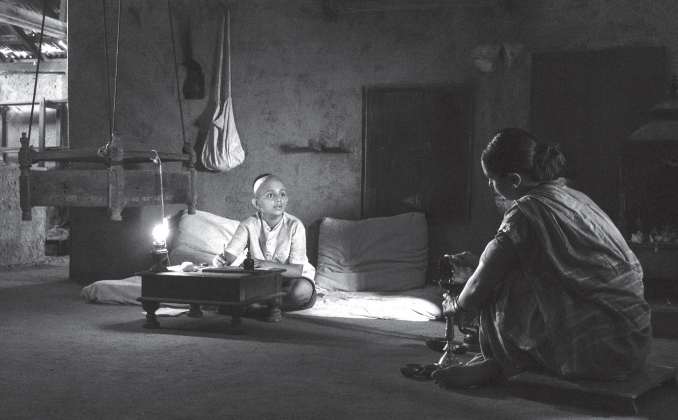 (A still from the film Shyamchi Aai - 2023)
(A still from the film Shyamchi Aai - 2023)
So, when I revisited 'Shyamachi Aai,' I began thinking. Writing a script means deciding what we want to do. As I delved into the scriptwriting, I realized that Guruji wrote this in 1932-33 when he was in jail. At that time, a severe drought had struck Khandesh, and the farmers were gathering to discuss the crisis. The situation was printed in the newspapers, and the government was criticized for not doing enough in the face of the drought. I feel that this is not outdated; it is relevant even today. We experienced similar situations during the COVID times, where people were losing their lives, and the government was criticized for not doing enough. The connection with that era is there, and even today, we need to learn from it and understand that when people face difficulties, the government should act more compassionately. This has a connection to the contemporary situation, and I felt this while reading it.
Guruji, who wrote in that era, his mindset, the circumstances at that time, everything can be related to the present. We can say something about that, and it felt necessary to convey that even today. This realization created a fear in me that today, despite technological advancements and vibrant colors, there may be a superficial portrayal of events. Even though we can manipulate colors with technology today, it might not easily capture the intensity and gravity of the situation. That's something I felt.
I felt that even though technology has advanced, it might not be able to capture the rawness of those times. In this context, whether Sujay can convey this or not, is yet to be seen. However, what he has conveyed is significant, and I felt that while doing this.
- Sunil Sukthankar
sunilsukthankar@gmail.com
Interview by Sadhana Editor Vinod Shirsath
Paraphrasing by Suhas Patil, Translation by Meghana Kavale
Read Part 1 of the Interview here
Tags: kartavya sadhana sadhana weekly sadhana prakashan sunil sukathankar shyamchi aai sujay dhake 2023 screenplay interview part 1 Load More Tags

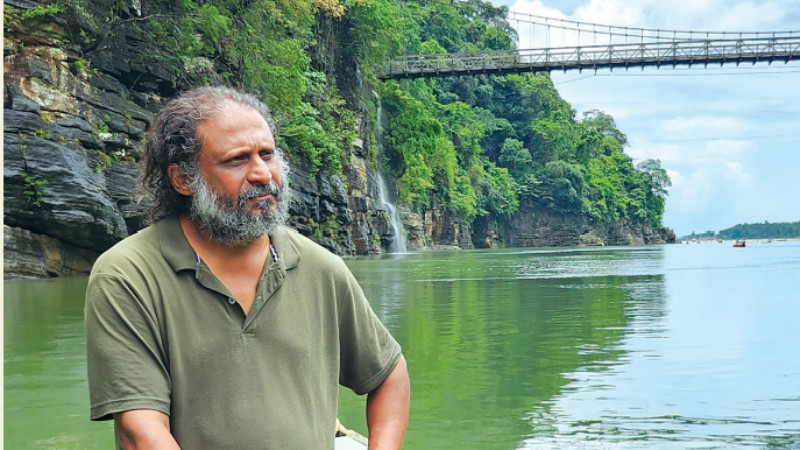
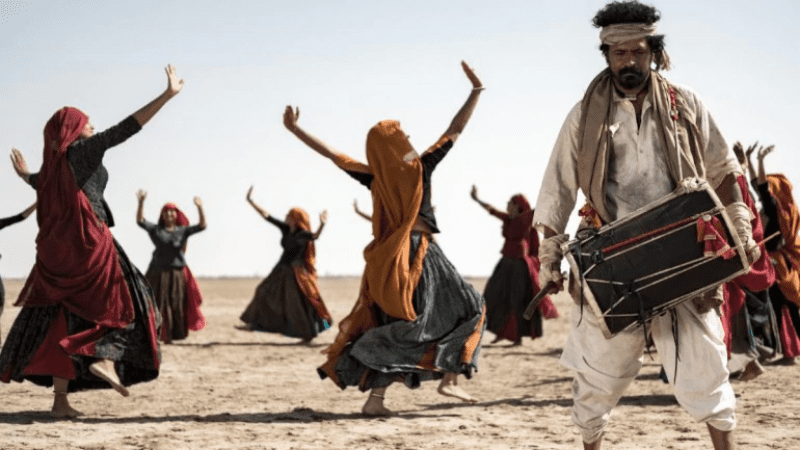
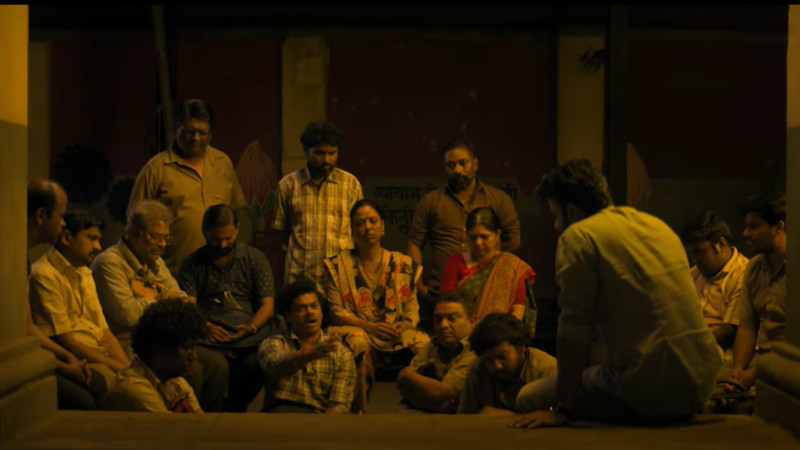
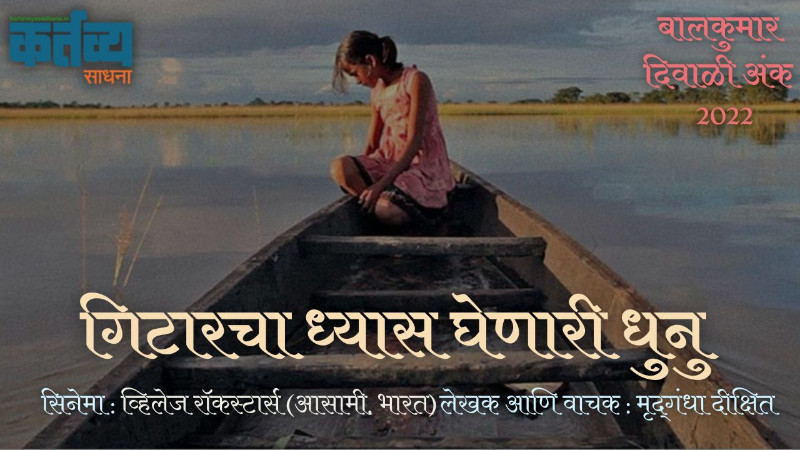
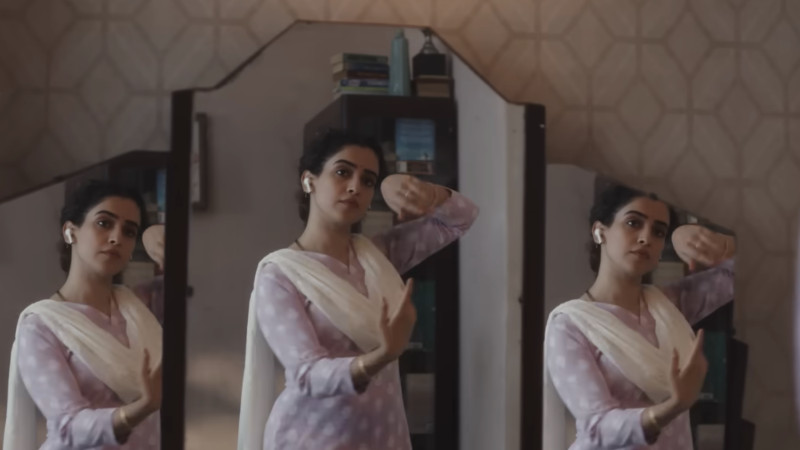
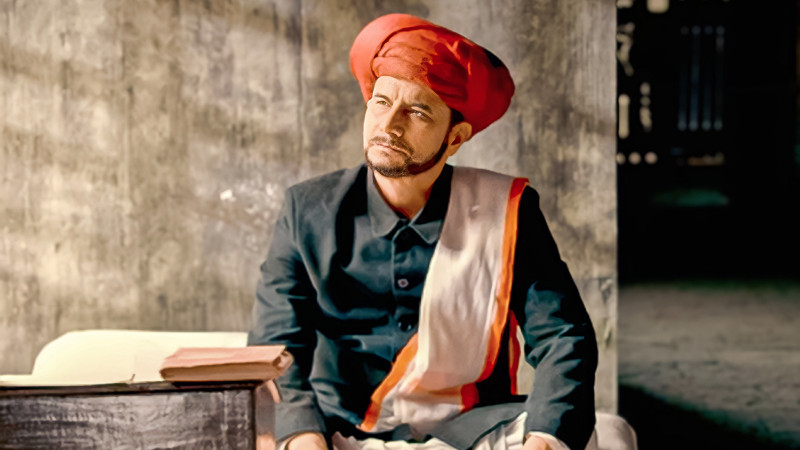
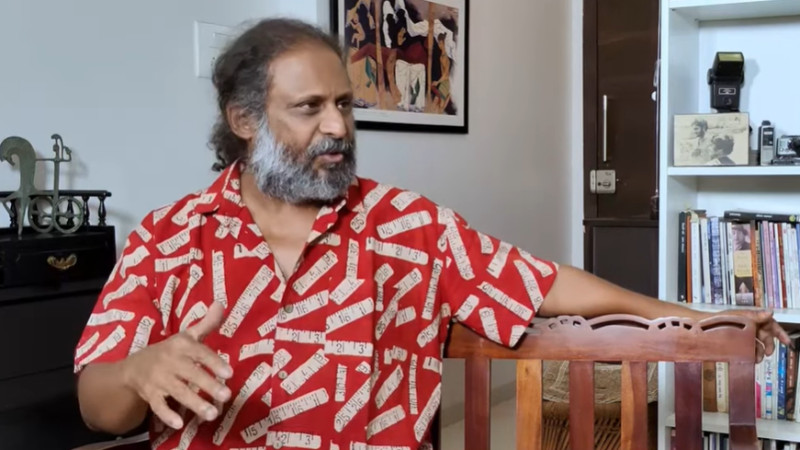

























Add Comment